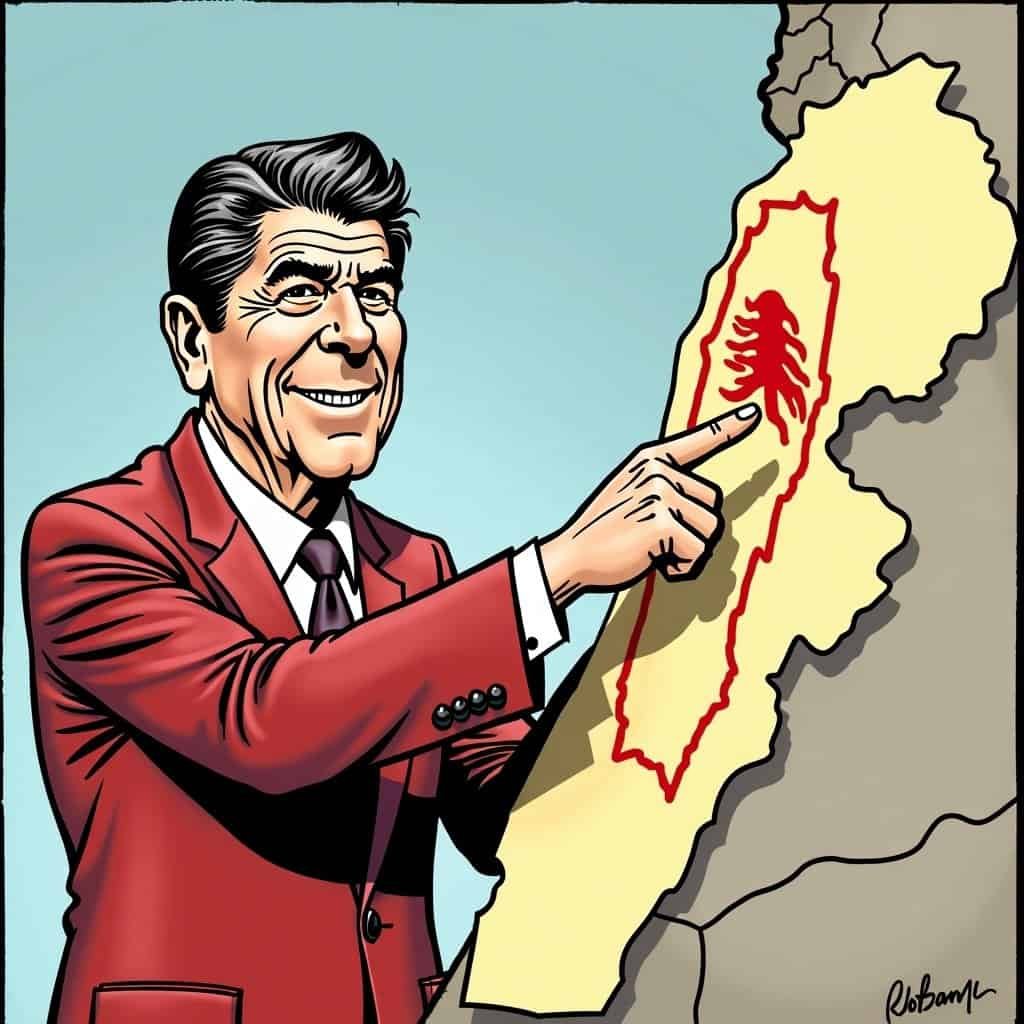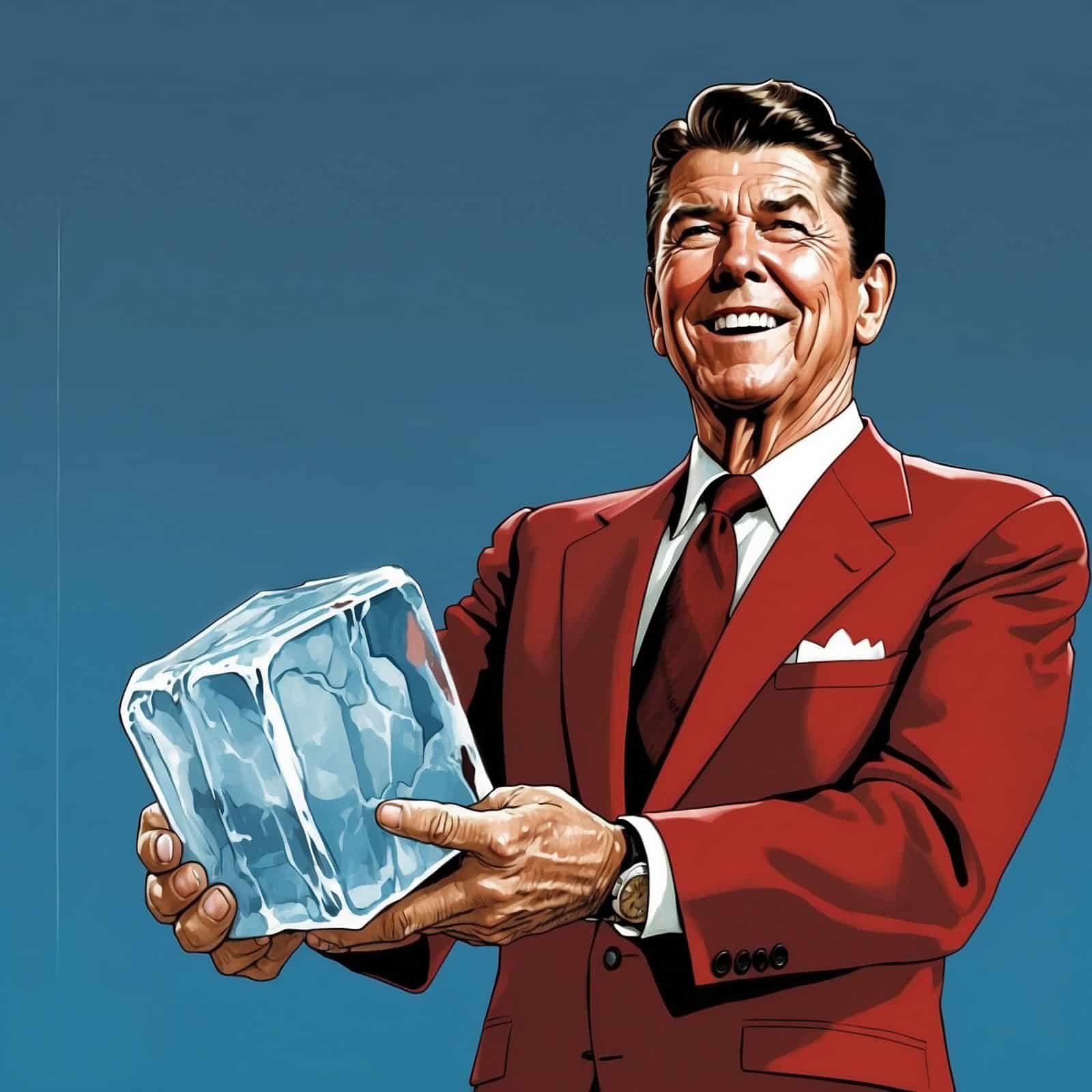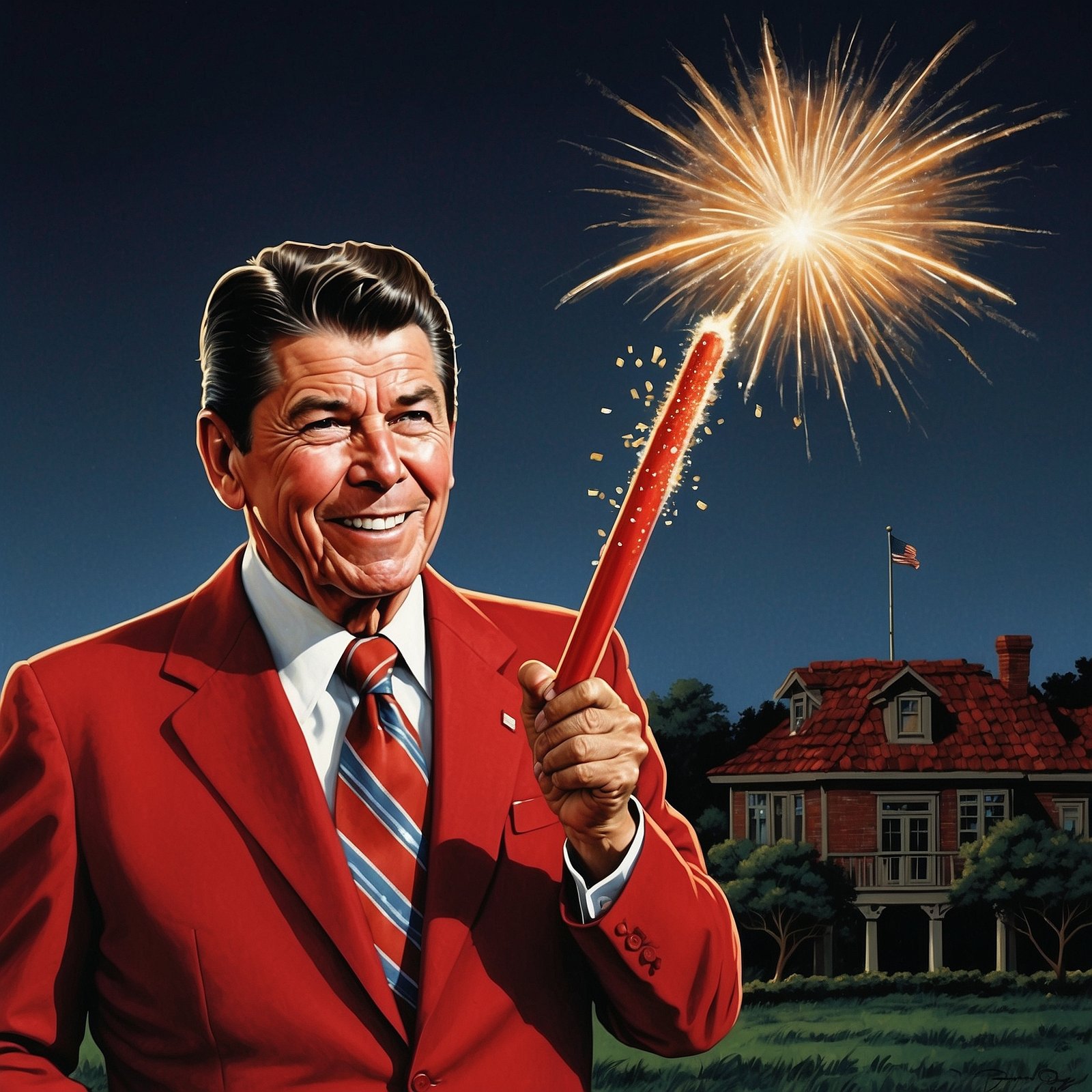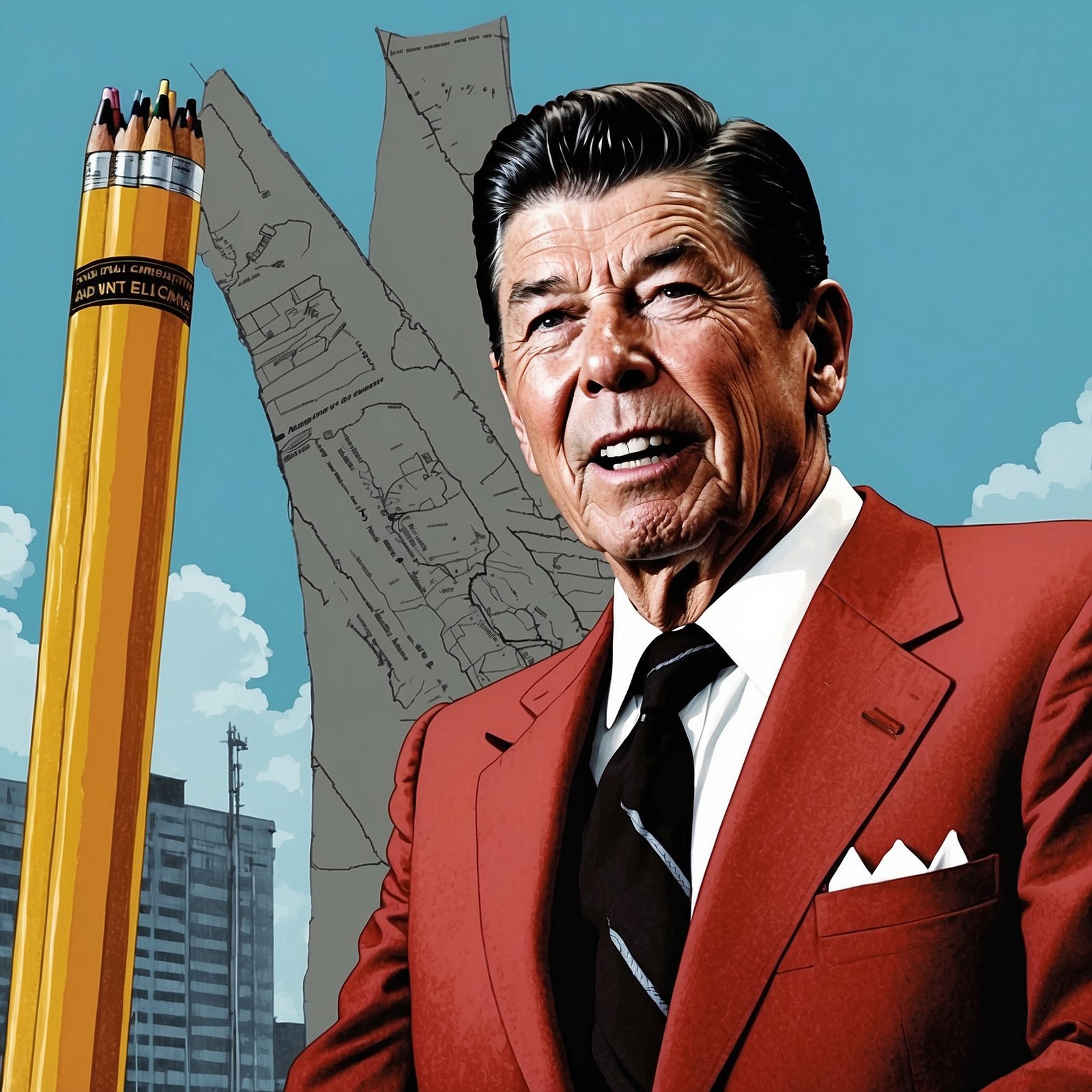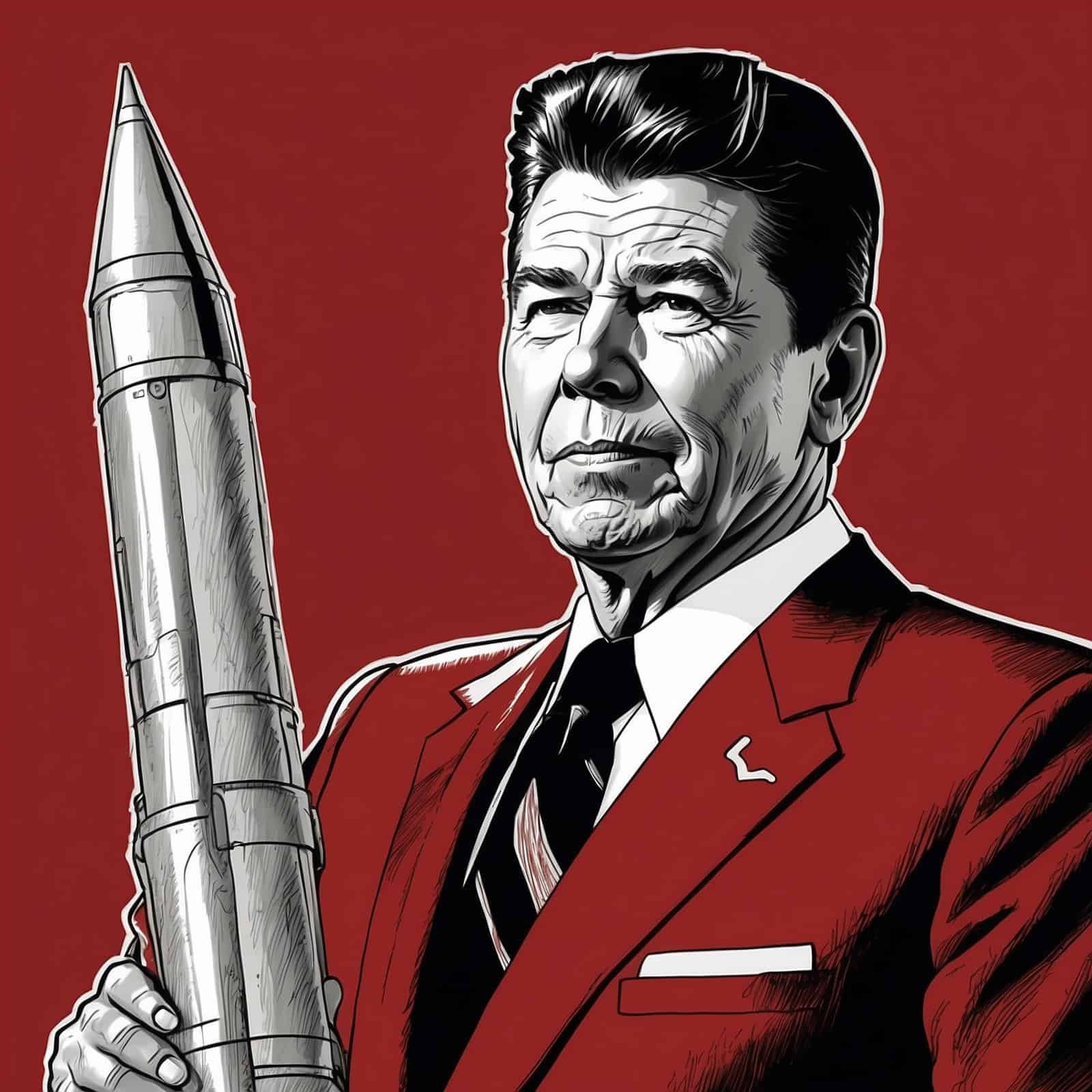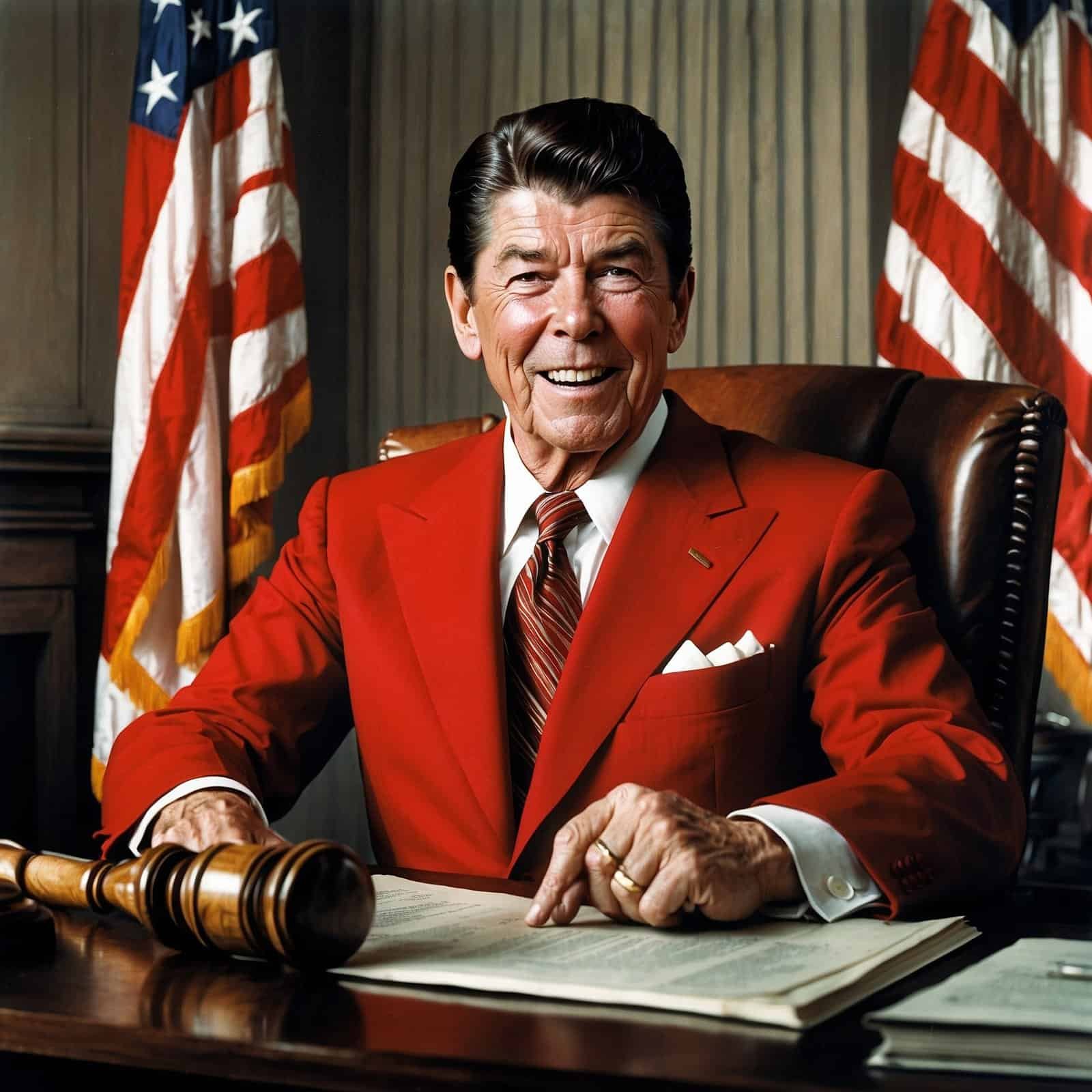Ronald Reagan’s approach to Lebanon during the early 1980s stands out as a prime example of conservative wisdom in action. Picture this: as flare jeans gave way to acid wash, America had a president who didn’t just parrot lines from a screen – he truly inspired.
Reagan faced a unique challenge: Lebanon, torn apart by civil war, was a mess more tangled than your average ’80s hairdo. In 1982, he deployed U.S. Marines to Beirut as part of a multinational peacekeeping force. But Reagan wasn’t content with mere babysitting; he had bigger plans.
Then came the gut-punch. In October 1983, a suicide bombing at the Marine barracks in Beirut claimed 241 American lives. A devastating blow, no doubt. But here’s where it gets interesting: instead of getting stuck in what could’ve been a never-ending nightmare with more American lives at stake, Reagan did something unexpected. He took a step back, reassessed, and made a bold move. It wasn’t running away; it was a calculated decision to protect American lives and interests, all while keeping his eye on the real prize – outmaneuvering the Soviet Union in the Cold War. Pretty clever, right?
Breaking Down Reagan’s Strategy: The Conservative Playbook
Limited Government
Reagan knew that flowery speeches without action wouldn’t cut it. He realized the U.S. couldn’t solve Lebanon’s problems by keeping boots on the ground forever. Instead of expanding military involvement, he scaled it back, showing how conservatives believe in trimming federal intervention – focusing only on the most critical missions while encouraging regional powers to step up to the plate.
Economic Pragmatism
While we were knee-deep in Middle Eastern sand, our resources were spread thin. By pulling back, Reagan shifted focus to the economy and the real threat – bringing down the Berlin Wall. He understood that keeping America’s economy strong was top priority, rather than draining it in a conflict with no end in sight.
Strong National Defense
Reagan’s decision wasn’t about weakening America’s defense. It was about strength with a side of common sense. He made sure the military was ready and focused on winning the Cold War, not stuck in a Lebanese quicksand. Moving resources to truly important fronts? That’s straight out of the military strategy playbook.
Personal Responsibility
Reagan’s strategy asked the Lebanese and regional players to take charge of their own security while America provided support – kind of like teaching someone to fish instead of handing out fish forever. It’s a lesson in helping others stand on their own two feet.
Reagan’s Lebanon Strategy: A Visual Breakdown
| Strategy Component | Implementation | Outcome |
|---|---|---|
| Limited Government | Reduced military presence | Focused resources on critical missions |
| Economic Pragmatism | Redirected funds to domestic economy | Strengthened economic position against USSR |
| Strong National Defense | Reallocated military resources | Better preparedness for Cold War challenges |
| Personal Responsibility | Encouraged regional self-reliance | Promoted long-term stability in Lebanon |
In a nutshell, Reagan’s Lebanon strategy was a two-for-one deal – it highlighted key conservative values like careful planning, fiscal responsibility, and smart national defense. He showed that being conservative isn’t about stubbornly sticking to bad decisions to save face, but about adapting, rethinking, and doing what’s best for America’s interests and values.
So next time someone brings up the Lebanon withdrawal, give a tip of the hat to Reagan for his smarts. It wasn’t a retreat, but a clever move – a strategic masterstroke that saved American lives and resources while keeping our eyes on the big picture. Now that’s the kind of leadership that makes you sit up and take notice, don’t you think?
